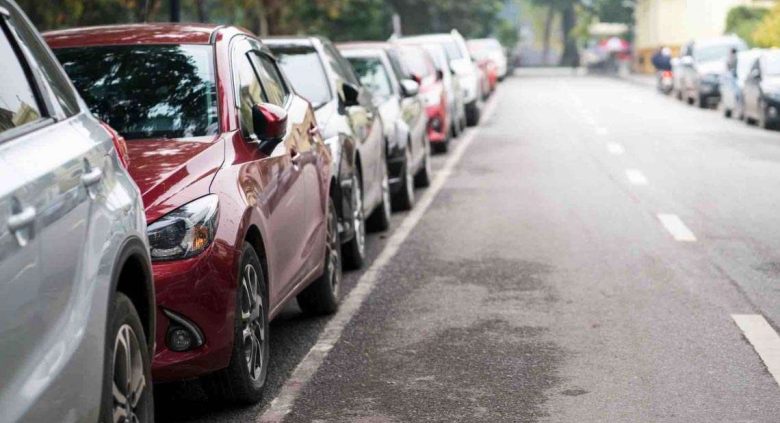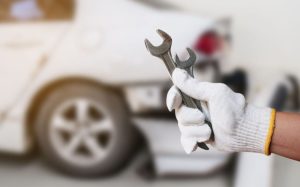Parking is a stressful part of driving for many. Finding the right spot, maneuvering your car into it, and ensuring that the vehicle is secure can be daunting, especially in tight or crowded spaces. However, parking does not have to be an intimidating task. Parking can be a lot easier with the right habits. Preparation, patience, and simple techniques work in almost every situation. You can make parking a simple step in your journey by focusing on the above.
The Importance of Staying Calm While Parking
It is common for drivers to feel rushed when parking, whether it’s because of traffic behind them or their own impatience. The first step in stress-free parking is to stay calm. By taking a deep breath, ignoring other cars’ pressure, and concentrating on your own maneuver, you can make better decisions. Rushing can lead to mistakes due to misjudging space and angles. Calmness allows you to be aware of your surroundings, confident in your movement, and make the whole process less daunting.
How to Choose the Best Parking Space
Picking the right parking spot is key to a stress-free experience. Drivers often choose the first spot they find, no matter how cramped or awkward it may be. These situations can make parking more difficult than necessary. It’s often best to drive further to find an easier spot to enter or exit. Ideal choices are wide spaces, areas at the end of roads, and places with good lighting. By choosing a parking spot that has enough space around it, you can reduce the risk of getting scraped or dinged by other vehicles and have more room to maneuver your car.
Using Mirrors & Cameras Effectively
Mirrors are a great parking tool, even if your car doesn’t have any of them. You can see clearly what is around you by adjusting your mirrors before parking. When parking cameras are available, they can give you an added level of confidence because they show blind spots that mirrors might miss. It is important to rely on these tools as guides and not completely on them. You will be able to learn to combine mirrors and cameras to make safe and precise parking movements with consistent practice.
Practicing Parking Maneuvers Regularly
Parking becomes easier as you practice. Parking is something that many drivers put off, thinking they’ll improve over time. However, dedicating a few minutes to practice in an empty parking lot can significantly improve your skills. Practicing parallel parking, reversing into a space, or angle parking repeatedly builds confidence and muscle memory. When faced with a parking challenge, the techniques you have practiced in the past will become second nature. This will reduce stress and hesitation. Parking will be easier if you’re familiar with your car and its size.
Being Aware of the Environment
Paying attention to the surroundings is also important for parking safely. Keep an eye on the road for pedestrians, cyclists, and other obstacles. Check the area before parking for children, shopping trolleys, or uneven terrain. As you reverse, look over your shoulders in addition to mirrors and cameras. You can avoid accidents by being aware. It also ensures your vehicle is parked safely and without causing any inconvenience to other drivers. It is important to park responsibly and safely.
Building Confidence through Consistency
Confidence is the key to stress-free, easy parking. And confidence can only be built through patience and constant practice. Your skills are reinforced with each successful parking attempt. What was once a stressful task becomes routine with time. Confidence can also reduce hesitation, which makes parking difficult. You will gain confidence by practicing, learning from mistakes, and trusting yourself.
Conclusion
The most stressful part about driving does not necessarily have to be parking. You can make parking a simple task by staying calm, selecting the best spot, using cameras and mirrors, and regularly practicing. Being patient and aware of your surroundings, as well as reversing into parking spaces, will add to the safety and ease of parking. The real solution is to build your confidence and consistency. Technology can be helpful, but it’s not the only way. While parking requires constant attention, it doesn’t have to be stressful. Parking can be stress-free with simple habits and a thoughtful attitude.
FAQs
1. What are the benefits of reversing into a parking space?
When reversing, it is easier to safely exit the vehicle since you can see all traffic and pedestrians.
2. How do I reduce my stress when parking in a busy area?
Take your time and avoid rushing.
3. Are parking sensors and cameras a worthwhile investment?
They can be useful for reducing blind spots and providing guidance but should also be used with mirrors and direct observations.
4. What can newbies do to strengthen their parking skills?
Beginners can learn and gain confidence by practicing in an empty lot.
5. Can I skip a parking space that is too tight?
Absolutely. It is safer to choose a larger or easier area than to force a difficult maneuver.



